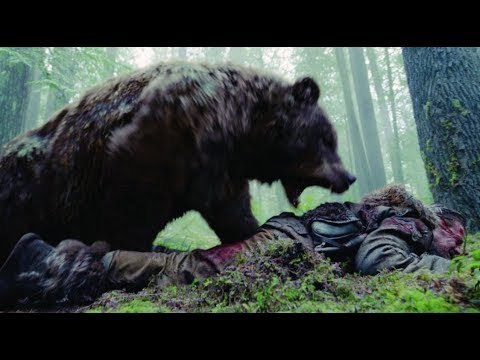Alan Watt's Blog, page 2
December 23, 2019
The Desire to Write
We begin flush with excitement, thrilled at the opportunity to express something in a way the world has never known. As we go deeper into the story, the forest grows thick with ghosts from our past. We can become haunted by the ancient fear that we are not up to the task. Surely, we are destined to fail. We find ourselves, whether consciously or not, in a duel to the death with the beliefs of our ancestors. This is inevitable, because (are you ready for this?) story is always about betrayal.
Inherent in every transformation is the betrayal of a lie.
We can become paralyzed by this. Or it can thrill us. We can become thrilled by the truth. Whether it is conscious or not, the desire to write is connected to the desire to evolve, to untangle the lie that we have been carrying around about ourselves for a million years. The lie is that we are not enough, that we are not forgiven, that it is never going to happen for us, that we should just forget it, pack it up, go back to wherever we came from.
The story asks everything of us for a reason.
If it didn’t, we would never surrender.
Through story, we engage our unconscious in confronting our ego, our desire to get something that we want, only to discover its impossibility. Our mission, should we choose to accept it, is to surrender our old ‘story’ about ourselves, to let the old identity die, so that a new one can be born.
This is challenging. It is courageous. It is something that no one out there will ever encourage you to do. It is something that no one will ever even expect of you. It is the soft whisper at the outer edges of our imagination, calling us to drive ourselves deeper into the truth. It is something that our conscious minds push away, inviting distraction because we are afraid to grow.
But guess what?
Our soul wants to grow. Our soul hungers for something more than belonging. It hungers for its true place, for a connection where there is no compromise of its fundamental nature. It aches to know life in a way that we can’t grasp with our conscious mind. It aches to evolve, and it is not going away. Story is alchemy. If we trust the process and stay with it, it will tell us all we need to know.
Why do you write?
Leave your reply below.
December 3, 2019
Building a Body of Work

I remember one day over twenty years ago when I was bellyaching to a friend of mine about how nobody was buying my work. He looked me dead in the eye.
“What’s your job?” he asked.
“To sell my work.”
“No,” he practically barked. “Your job,” he spoke slowly, “is to build a body of work.”
I blinked. Wow, I thought. Somehow that took all the pressure off of me. I don’t have to worry about what people think of the work, I don’t have to worry if its commercial enough, whatever that means, and I don’t have to tie up my self-worth with whether or not it sells.
My friend just happened to be a guy who had published three novels in quick succession to enormous acclaim, and then got stuck. He read the first twenty pages of his new novel to his wife, and she told him she didn’t like it. Instead of writing through the resistance, he retreated to his successful law practice, and never wrote again. He was fighting for me. He didn’t want me to make the same mistake.
A couple of years ago my film, Interior Night, did not get accepted into the Toronto Film Festival. I’m from Toronto. Even though I knew it was a bit of a long shot for a tiny-budget film with a relatively unknown cast to get accepted, you would think they would want a hometown boy to represent. And you would be wrong. I have no idea why the film didn’t get accepted. I do know they get thousands of submissions (I heard the number 2,500 feature film submissions) for a little over a hundred spots—many of which are already taken by the indie studio films which have a standing relationship with the festival manager. (In other words, they’re not going to turn down premiering Brad Pitt’s next film). But that doesn’t stop my brain from wanting to obsess on what it all means. Why didn’t they choose us? Should I have tightened that scene in the third act, etc. Insanity.
Which is why I give myself five minutes to indulge in the grief. Seriously. My wife says to me, “You never let anything get you down.” I used to. But it’s not worth it. Any more than five minutes and I go down a rabbit hole and lose a perfectly good writing day.
A week later, we got this note from the Boston Film Festival: “Every one of us on the screening committee for the Boston Film Festival were astounded by the driven energy of your film’s cast and the gripping movement between narratives to form a complex, provocative whole. An official letter of acceptance with further detail will follow shortly. Congratulations on crafting a fantastic, visionary work”.
Here’s the thing: Good news is as dangerous as bad news.
The creative life is a rollercoaster. I gave myself five minutes to celebrate. I called my wife. She screamed, “Boston! My friends and family can come to the screening!” We chatted about how cool it was. And then, I got back to work.
I don’t do it perfectly, but going down the rabbit-hole is a luxury I can no longer afford. In your twenties you can go the café and bitch about your unacknowledged genius, but as we get older, the clocks starts to tick.
Don’t go down the rabbit hole.
We all have busy lives. We’re trying to make ends meet, spend time with friends and family, and get to bed at a decent hour. But our creative life keeps calling to us. We have to feed our soul. We want meaning, but Facebook and Instagram are calling for your attention, and they offer great short-term gratification.
Turn off your internet. Get FREEDOM. It’s 10 bucks. Google it.
Life is short. You have something to say. You have something to tell us, that can only be told by you. Don’t deny us. Don’t deny yourself.
As my prolific author friend, Eric, says. “I hate writing. But I love having written.”
Don’t worry about being published. Don’t worry about the result. Don’t worry about whether or not people will like it. We have no control over these things. Let it go, and let the thrill of creation be your reward.
Start today. Build a body of work.
November 26, 2019
The Inner Critic

“Don’t worry about what the world needs. Ask what makes you come alive, and go do it. Because what the world needs are people who have come alive.”
– Howard Thurman
There’s a difference between writing for our ideal reader and writing for our inner critic. The inner critic is like a 24-hour flu – it passes, but in the meantime it has robbed us of a good day’s work. The challenge is not in overcoming the inner critic but in writing through the fear.
If we write from our inner critic, we can kill the aliveness of our work. If we second-guess ourselves, we can create a decade-long battle from what could have been a three-month first draft.
Creating art requires that we accept the work for what it is. We can’t force our characters to be other than they are. Just as water goes with the flow, our characters adhere to the context within which we’ve placed them.
When we trust our characters’ impulses, we often find ourselves pleasantly surprised that their behavior is still in service to our theme. The moment we try to impose a false action on our characters, they will rebel.
So how do we reconcile trusting the aliveness of our characters with adhering to our story’s underlying theme? Being aware of the tension between these two seemingly opposing forces is half the battle.
The second half is a matter of focus. If we focus on the road directly in front of our car when driving on the highway, our control of the vehicle is limited, but if we widen our perspective, the car moves more smoothly and we tend to relax. Storytelling works the same way. We move from the general to the specific.
It’s our job to listen to our characters. Sometimes we receive inspiration in great hunks and sometimes in dribs and drabs. We take it when we can get it. We try to be grateful and remember that inspiration is the result of sincere inquiry, not self-flagellation.
The inner critic wants us to fail. It can’t stand the tension of waiting to see if the cake will rise. It may be the worst part of ourselves, but that doesn’t mean that we can’t use it to our advantage.
Rather than wasting energy trying to silence the critic, or making the mistake of waiting for the “right time to write,” as if the critic is ever going away, the secret is to do your work now IN SPITE of the son of a bitch, and to MAKE YOUR STORY MORE IMPORTANT THAN THE RESULT. The antidote lies in embracing our insecurity and inquiring into its nature. By doing this we’ll discover that our feelings of doubt and fear are identical in nature to those of our characters, thereby making us uniquely qualified to tell our story.
November 13, 2019
Juxtaposition

The rewrite process can sometimes lead us into a rut. Our attempts to make our work as clear and specific as possible can begin to feel routine. Sometimes we need to mix things up and get a little dangerous on the page.
David Bowie used to write songs by cutting out words and sticking them together in surprising ways. By randomly arranging words he arrived at juxtapositions that he might never have otherwise considered. Consider his song, “Five Years,” with the line, “My brain hurt like a warehouse,” or “A soldier with a broken arm, fixed his stare to the wheel of a Cadillac.” These lines may not make much logical sense, yet they are evocative.
There is value in exploring juxtapositions at the level of words, sentences and even plot. Our assumptions about the best way to unravel our story can often limit us from having revelatory experiences. Don’t be afraid to mix things up, to take risks and surprise yourself. Your story is far more malleable than you might think. Just for fun, take the scenes from your first act and reorder them – just do this in your head or on a single piece of paper. Notice how the story is told differently. Notice how it alters the meaning. Notice how it changes the narrative flow. Don’t assume that you have discovered the most dynamic way to tell your story until you’ve explored a variety of options.
Our idea of our story is never the whole story; it’s not that our idea is incorrect, but that it is incomplete. The rewrite process demands that we be willing to continually shed our idea of our story for the truth of our story. This is not a scientific process, but a creative one. We do this by moving words around, by moving scenes around, by being willing to allow our idea of our story to collapse in order to arrive at a clearer understanding of what we are attempting to express.
Sometimes what is left unsaid provides our story with its meaning. It is often not the words themselves, but the juxtaposition of sentences that ignite the imagination.
Consider Hemingway’s six-word short story:
“For Sale. Baby shoes. Never worn.”
A beginning, middle, and end. Each sentence, on its own has little meaning, but together it conveys a world that is devastating as our imagination fills in the gaps.
AN EXERCISE:
If your prose feels utilitarian, remove every second line from a paragraph and notice how the paragraph reads. Obviously it won’t make much sense, but you will begin to see opportunities that you hadn’t previously imagined. Try moving sentences around randomly. Read them out of order and notice how it alters the meaning.
October 28, 2019
Your Writing Process is Valid

The 90-Day Novelists began writing their first drafts a couple of weeks ago. Through this workshop we are each discovering our own unique process, and more importantly, we are learning to trust that it is valid. Every writer has their own way of working, a process that has to be developed and honed over many years.
Margaret Atwood starts with a rough notion of how the story will develop, “which usually turns out to be wrong,” she says. She moves back and forth between writing longhand and on the computer. When a narrative arc starts to take shape, she prints out chapters and arranges them in piles on the floor, and plays with the order by moving piles around.
Nicholas Baker rises most days at 4:00 a.m. to write at his home in South Berwick, Maine. Leaving the lights off, he sets his laptop screen to black and the text to gray, so that the darkness is uninterrupted. After a couple of hours of writing in what he calls a dreamlike state, he goes back to bed, then rises at 8:30 a.m. to edit his work.
British novelist Hilary Mantel likes to write first thing in the morning, before she has uttered a word or had a sip of coffee. She usually jots down ideas and notes about her dreams. “I get very jangled if I can’t do it,” she says. She’s an obsessive note taker and always carries a notebook. Odd phrases, bits of dialogue, and descriptions that come to her get tacked to a 7-foot-tall bulletin board in her kitchen; they remain there until Ms. Mantel finds a place for them in her narrative.
Richard Powers, whose books are often concept-driven, intricately plotted and stuffed with arcane science, wrote novels while lying in bed, speaking to a laptop with voice-recognition software. To write Generosity, his novel about the search for a happiness gene, he worked like this for eight or nine hours a day.
Before she begins a novel, Edwidge Danticat creates a collage on a bulletin board in her office, tacking up photos she’s taken on trips to her native Haiti and images she clips from magazines ranging from Essence to National Geographic. Ms. Danticat, who works out of her home in Miami, says she adapted the technique from story boarding, which filmmakers use to map out scenes. “I like the tactile process. There’s something old-fashioned about it, but what we do is kind of old-fashioned,” she says. Sometimes, the collage grows large enough to fill four bulletin boards. As the plot becomes clearer, she culls pictures and shrinks the visual map to a single board.
She writes first drafts in flimsy blue exam notebooks that she orders from an online office supply store. She often uses 100 exam books for a draft. “The company I order from must think I’m in high school,” she said. She types the draft on the computer and begins revising and cutting. Finally, she makes a tape recording of herself reading the entire novel aloud—a trick she learned from Walter Mosley—and revises passages that cause her to stumble.
When writing The Brief Wondrous Life of Oscar Wao, Junot Diaz read J.R.R. Tolkien’s Lord of the Rings trilogy half a dozen times to get inside the head of his protagonist, an overweight Dominican teenager who’s obsessed with fantasy and science fiction. He often listens to orchestral movie soundtracks as he writes, because he’s easily distracted by lyrics. When he needs to seal himself off from the world, he retreats into the bathroom and sits on the edge of the tub. “It drove my ex crazy,” he says. “She would always know I was going to write because I would grab a notebook and run into the bathroom.”
Whatever you do to get to the end is valid.
August 6, 2019
Ten Suggestions

The 90-Day Novel, 90-Day Screenplay, and 8-Week Memoir telecourse workshops all begin next month. Below are ten suggestions for anyone who is setting out to write a novel, memoir, or screenplay. Some are obvious, while others are perhaps less so.
1) Write everyday. No matter what. The simple act of moving a pen across a page or typing words on a screen keeps the brain connected to the fingers. It’s like a pianist practicing her scales. Write from your guts. Write the forbidden. Tell the truth as you know it, and trust it. Let the characters live and breathe, and let go of the result.
2) Keep a journal. Express yourself on the page. Burn through your self-consciousness. Burn through your ideas of what it means to be human. Express your pettiness, your darkest desires, your most frightening thoughts, what makes you laugh, what makes you hopeful, hopeless, and horny. Nothing human is alien to us. Connect to that uninhibited place in yourself, that soul place that seeks freedom.
3) Read. As much as you can. We are storytellers and reading is part of our job description. However, don’t beat yourself up because you don’t think you’ve read enough. Writing is still more important than reading.
4) Support other writers. Being a writer takes courage and sensitivity. There is a difference between opinion and constructive criticism. Don’t be jealous of another writer’s success. Your turn is coming. And buy books. Support your fellow writers. We may spend most of our lives alone in our rooms, but we are still a community.
5) Be careful with whom you share your work. Even well-meaning friends are not necessarily equipped to offer constructive criticism. Ask someone whom you trust, whom you feel safe with, and who is more curious about what you’re attempting to express than they are in telling you how they would have written your story.
6) Don’t show your work to anyone until you have done all you can. It is disrespectful to the reader, a sure sign of an amateur. “I’m not really done, but I want to know what you think so far.” This is self-sabotage. How many potentially brilliant works have been stillborn because the writer gave it out too early, got criticized and decided to chuck it, rather than doing the hard work of completing a fully realized first draft?
7) Stay out of the result. Our job is to write the thing. We are the last people who can be truly objective about it, at least while we are in the middle of it. Don’t get into the future. Don’t start calculating how large an advance you’ll need in order to quit your job. Our job is to create a body of work. Period.
8) Trust the process. You are not the author, you are the channel. Our job is to remain curious and take dictation.
9) Write the first draft as fast as you can. Before you have time to think.
10) Be kind to yourself. Artists are channels. It’s difficult to write transformative stories if we are not willing to be transformed.
July 30, 2019
Passion

“I have no special talents. I am only passionately curious.” – Albert Einstein
What do you feel passionate about? What is your position on justice, authenticity, self-authority, the need for community, or the lost rights of left-handed people? It is through investigation of the things we feel passionate about that we come to discover a deeper truth.
What we feel passionate about is subjective, meaning it is arguable. We don’t feel strongly about facts: I am writing at a desk. My cat is sleeping on the couch. However, we may feel passionate about the importance of getting cats spayed or neutered. And because we live in a world of limited resources, others might say, yes, but our time and money is better spent on education, and now we have conflict, and the birth of a story.
Investigating what we feel passionate about is where the seed of our story lies. Writers often revisit what they feel passionate about throughout their lives, examining these issues from different angles. The plot may change, but the theme often remains the same.
By becoming conscious of what we feel passionate about and exploring its opposing arguments, we begin to see our story more clearly.
Have you ever read a book or watched a movie and felt like the author or filmmaker was preaching at you, like they were pushing an agenda?
The way to avoid this is to understand that the purpose of story is to reveal a transformation. Story is not about winning an argument, but about revealing a deeper truth. Every married person knows that winning an argument does not lead a peaceful coexistence. If one person wins, everyone loses. It’s the same in story. If all that happens at the end of the story is that your hero gets what he wants, your reader will be disappointed. If Jimmy Stewart left Bedford Falls at the end of It’s a Wonderful Life, we would be an audience bewildered.
We care about what the protagonist needs. In story, the hero goes on a journey in order to reframe his relationship to his goal.
In the film And Justice For All, Al Pacino is asked to defend a man whom he loathes, a judge who is accused of rape. Pacino is an upright, perhaps even idealistic lawyer who deeply believes that everyone deserves a fair trial. He also realizes that if he refuses to defend the judge, he could lose his lawyer’s license. When he learns that the judge in fact did commit the crime, he is faced with a dilemma, and the question of justice suddenly takes on urgent meaning. We are no longer standing on the sidelines. We are engaged in the question of how justice will be meted out fairly. It is through this story that we discover there is a price for justice. Pacino is forced to make a decision that inexorably alters his future.
WRITING EXERCISES:
1) Write for five minutes on what you feel passionate about:
2) Distill what you wrote into a single arguable statement, for instance: I feel strongly that everyone deserves a fair trial.
3) List the opposing arguments to this statement and you will begin to connect to the antagonistic forces in your story in a truthful and compelling way.
July 23, 2019
Writing is a Contact Sport
 Image from The Revenant
Image from The RevenantLast week in one of my workshops we found ourselves discussing the difference between writing from the head and writing from the body. We tend to think of writing as a sedentary activity, engaging our intellect, but it’s not. We are engaging our imagination, which involves a full-body experience. Unless we are experiencing the story in our bodies, our work risks becoming cliché.
It’s helpful to think of writing as a somatic experience.
When Mark L. Smith and Allejandro Innaritu wrote The Revenant scene where Leo is attacked by the bear, they had to allow themselves into the experience. There is nothing intellectual about this. They needed to imagine the actual experience of being mauled by a bear, the choreography of it, the truth and the terror of it, the desire to survive, the helplessness of the trapper—while also exploring the emotional experience of the bear. In order to write something that rises above our clichéd idea of a mauling we must allow ourselves into our characters’ experiences. There was something so real and frightening as the filmmakers played with our hopes. The bear retreated, then returned, toying with our expectations, but also operating in a way that rang true.
Writing is brave work. It demands that we have some skin in the game. We are going to feel something. It’s going to hurt, sting, and break our hearts. Our emotions are the tools of our trade. We are going to laugh, holler, weep, and berate our characters for being too trusting, too weak, too proud, and too compassionate as we walk beside them on their journey to wisdom or death.
Carl Jung says “the artist is not a person endowed with free will who seeks his own ends, but one who allows art to realize its purposes through him.”
Whether we’re writing a screenplay, novel, or memoir, we are exploring ways to take the reader into the experience of the moment. Story is an emotional ordeal, and as the creators of the story we must be willing to go to those forbidden places. We must be willing to explore characters whose beliefs and politics we deplore, and search for understanding. Unless we are willing to explore the humanity of apparent monsters, our characters will be two-dimensional.
To be a writer is to wear the clothes of our characters, to walk in their shoes without judgment, to explore how under their particular circumstances we might very well make the same choices that they do. To be a writer demands that we use our mind and body as a channel for our characters’ experience.
But here’s the rub: We often reach a point in our story where it gets too difficult, too scary, too raw to imagine a way out of our hero’s predicament. And this is often where the writer stops.
Here’s the solution: Imagine your protagonist transformed.
Imagine your protagonist at the end of the story and ask yourself how she is relating differently to other characters. Ask yourself what she has come to understand.
Einstein says, “You cannot solve a problem at the same level of consciousness that created the problem.”
By simply imagining our protagonist at the end of the story, we begin to embody her EXPERIENCE.
I half-jokingly tell my writers that the difference between writing class and therapy is that in writing class you are guaranteed a transformation because all you have to do is imagine it. Our imagination is powerful, because on a somatic level we don’t know the difference. When we imagine our protagonist transformed, we experience it ourselves. We step into our power. We connect to what she understands. And the miracle is that our subconscious builds a bridge to that place. In Act 1 and Act 2 she was pursuing her idea of salvation, while in Act 3, having surrendered that idea and accepted the reality of her situation, she experiences true salvation.
This is the magic of story. We tend to get stuck because we cannot imagine what happens next, so let’s stop trying to figure out what happens next and go directly to our hero’s experience at the end of the story. When we imagine their liberation, their new understanding, our subconscious naturally begins to wonder how they got to that place. Those blind spots that kept us from seeing the whole picture start to get filled in because we are no longer seeing our story as a riddle to solve, but as a dilemma to resolve through a shift in perception.
July 3, 2019
What is my Screenplay About?

Filming my directorial debut, Interior Night, was an exhilarating and exhausting experience. I’d seen the movie a hundred times during editing, and after so many viewings it was hard to have much objectivity, yet I was required to continue making creative decisions.
The thing that helped me through the process was returning to the question: “What is this thing about?”
Because we talk about this so often in the workshops, I wanted to use my process with the film as an example of how I arrived at a meaningful understanding of what my film was about.
First, we’re not looking for some empirical answer: my screenplay began as a search for connection, and that is still integral to the story. But as I explored what connection meant, the idea of “reveal yourself” kept emerging, and I began to see this as the resolution to the dilemma of connection.
This led me to explore ways to amplify the stakes: “What have these characters done that they are afraid to reveal?” “What is standing between them and experiencing a true connection?”
I wanted the story to be real, to reflect the people I know and grew up with. My background, the people I knew in my twenties and early thirties were standup comics, smart, articulate, and often quite damaged, with everything from substance abuse issues to things that I can only guess at. In other words, they all had secrets.
For whatever reason, I was drawn to exploring how these types of damaged people (none of my characters are comics, but they are basically high-functioning damaged people) face the secrets of their pasts in order to move on with their lives.
I didn’t want to write a story about good guys and bad guys – all of the characters are flawed in some way. I wanted to walk the line between caring enough about them to take the ride, but without offering easy or sentimental answers. I didn’t want to give them an easy out, but I wanted to redeem them in some kind of real and substantial way. (It seems that everything I write is an attempt to redeem the irredeemable.)
As I continued to explore what it means to “reveal yourself,” I discovered other words – responsibility and self-forgiveness. This process became an excavation as I imagined characters in relation to one another and explored the structure questions that speak to the key stages in the hero’s journey. I also worked with the writing exercises that we use in the 90-Day Screenplay workshop and began to discover who these characters were and how they related to each other.
My film is ultimately about connection, but through this process, I came to understand some things about connection that I didn’t previously realize. We can connect in all sorts of ways, and not all of them are positive. Connection can be an attempt to control, to stay in denial, to punish, but if one stays with it, eventually we discover that none of these strategies sustain us, and if we are willing, we move inexorably toward connection by gradually telling our truths.
The ending surprised me. I rewrote it fifteen minutes before we began our first day of shooting. It was a bizarre experience, after having lived with the story for so long, to wake up on the day I was to start directing it and realize that it didn’t feel true. We had done a number of readings of the script, workshopping it for a year and a half, and on the first day of principal photography, I told my producer how I thought it should end, and we both started laughing. We agreed that it was the truest and most organic resolution to the dilemma.
I am always encouraging writers to hold their idea of their story loosely. Our idea of our story is never the whole story. It’s not that our idea is incorrect, it’s just that it’s incomplete. Knowing this and teaching this for years gave me the freedom to hold it loosely, even as we were minutes away from production. Story is incredibly malleable. We don’t have to have it all figured out before we start writing it, or even directing it. But without staying connected to the theme, to “what the thing is about” we can easily become lost in the plot, and lose sight of what we’re actually attempting to express.
June 18, 2019
The Protagonist’s Experience

Regardless of the medium, your reader is not interested in what your character is feeling.
Seriously.
In fact, if you tell your reader that Bill felt sad, dejected, elated, euphoric, or glum, your reader will begin to feel irritated.
Why? Because in the context of story, feelings don’t mean anything, and the purpose of story is to convey meaning. Our challenge as writers is to translate feeling into experience.
This is why I teach story structure as an experiential model rather than as a conceptual model. When we place our focus on the key experiences that lead to our hero’s transformation, our plot begins to emerge. Consider the following words: Decision, Hope, Temptation, Suffering, Surrender, Action, Choice, Peace. These are experiences, and there are infinitely more. Happy, Sad, Glum, Jolly, Angry; these are feelings. Sadness is felt, while Suffering is experienced.
Feelings are transient. In the context of story they mean absolutely nothing, and if you tell us what your character is feeling, your reader will be forced to supply meaning, which they will base on their personal experience. This leads to confusion.
Experience is universal. We all understand the nature of an experience, because at the heart of EVERY experience lies a dilemma. A dilemma contains a powerful want and a false belief. For example: The dilemma of peace might be a desire to resolve conflict through not speaking one’s truth. In an attempt to experience true peace, one must struggle with the tension between wanting to get along with someone while allowing their voice to be heard. Through this struggle all sorts of feelings will arise, but the feelings are irrelevant. Your reader is going to feel all sorts of feelings through your characters’ experiences.
When you experience temptation, you might feel scared, sad, happy, or angry, and you might even feel all of these things at the same time. By exploring the nature of your protagonist’s temptation, you are immediately transported to your character’s experience and an image or situation arises. It is through the discovery of these images and situations that plot is revealed.




